Here at Wholesome Psychology, we offer kind, caring, and extensive eating disorder counselling. We believe that no one should struggle alone, and we are here to work with you every step of the day. Whether you think you may be experiencing an eating disorder, or have been diagnosed, we can help. We have a wide range of therapists available, who are trained in a wide range of modalities to ensure you find your best fit.
Understanding Eating and Weight Related Disorders
Eating and weight disorders can be complex. It is important to understand that eating and weight disorders are not always about food- they can reflect trauma and deeper emotional struggles. These disorders can make you lose your sense of self, and take a toll on your mental and physical well being. They can affect your quality of life. They can make you feel trapped.
An eating disorder is characterized by disturbances in an individual's eating habits and patterns. It can be normal to be concerned about health, weight and appearance, but an individual experiencing an eating disorder may become extremely fixated on body image, appearance and weight. These thoughts and feelings can be intense and overwhelming, which can lead to extreme control over food intake, such as avoiding eating or overeating.
Everyone’s experiences with eating or weight related disorders are unique. However, there are patterns that can be recognized for these disorders. It is important to recognize these patterns in order to take the first step to manage them. By addressing these patterns, your journey to recovery and overall well being can begin.
Signs and Symptoms Related to Weight and Eating Disorders
It can be hard to spot when an eating or weight related disorder is occurring. There are a few signs and symptoms, and when they become more consistent or become a pattern, it is important to reach out and get support. We are with you every step of the way.
Here are a few signs that an eating disorder might be occuring:
- Obsessive thoughts about food, calories, or body size
- Perfectionism and low self-esteem
- Social withdrawal or isolation
- Anxiety or depression
- Feeling out of control around food
- Frequent dieting or skipping meals
- Hiding food or eating in secret
- Compulsive exercising
- Using the washroom immediately after eating
- Fluctuations in weigh
- Chronic fatigue or dizziness
- Digestive issues or stomach pain
- Hair loss, dry skin, or feeling cold frequently
- Loss of menstrual cycle (in women)
- Headaches, muscle weakness, or irregular heartbeat
If you or someone you love has been experiencing these signs or symptoms, contact our team today and we can help you overcome these things and start your journey to mental and physical well being.
Why Choose Wholesome Psychology?
We are here to be your safe space! We strive to create a welcoming, kind, caring and compassionate environment for you to reach your goals. We have an extensive and diverse team of therapists ready to help. We are an inclusive, judgment free practice. With offices located in Edmonton and St. Albert, in addition to virtual and phone options, we have space for you, in whatever way works best for you.
With a wide range of modalities offered, in addition to our team, we have lots of options so that you can find your best fit. A few modalities that we offer to help with eating and weight related disorders are:
- Cognitive Behavioral Therapy (CBT)
- Mindfulness Based Therapy (Mindfulness)
- Dialectical Behavioural Therapy (DBT)
- Other behavioural therapy
We understand everyone has unique needs and wants when it comes to your healing journey. Our therapists take pride in working with you, as a team, to create goals and a plan for your sessions that fits these wants and needs.
During your sessions with us, your therapist will do an initial consultation in your first session to get to know you better. Then, over your coming sessions they will help you explore your relationship with food, your body, and what could be triggering your behaviours around food and your body. Together, your therapist will help you develop a deeper understanding and sense of self, in order to move forward in a healthy way, reaching your goals.
Ready to Take the First Step?
We would be honoured to be a part of your journey. Reach out to our team today to book your 50% first session to find your best fit. We would be happy to answer any questions you may have or provide additional information on our therapists or services. Let’s work through this together, we are here to help.
References: Mayo Foundation for Medical Education and Research. (2023, March 28). Eating disorders. Mayo Clinic. https://www.mayoclinic.org/diseases-conditions/eating-disorders/symptoms-causes/syc-20353603
National Eating Disorder Information Centre. NEDIC. (n.d.). https://nedic.ca/
